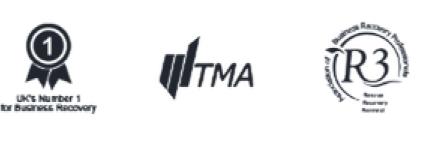How do I close a company with debts?
A company that cannot pay its debts when they are due or has liabilities that outweigh the value of its assets is insolvent. If your company is insolvent, it doesn’t necessarily mean it’s the end. Alternative financing, informal creditor agreements and formal insolvency procedures, such as a Company Voluntary Arrangement (CVA) or Administration, may give you the breathing space you need to turn your situation around.
However, if your company is buckling under the weight of its debts and is no longer viable, there are two main ways to close it:
- Creditors’ Voluntary Liquidation – You enter the procedure voluntarily and appoint a licensed Insolvency Practitioner to act as the liquidator. They wind up the company’s affairs, sell its assets and use the proceeds to repay its debts as much as possible. Any debts it cannot repay will be written off.
- Compulsory Liquidation – A creditor such as HMRC issues you with a Winding Up Petition to force you into liquidation, usually after multiple unsuccessful attempts to recover a debt. In this case, the official receiver acts as the liquidator. They will wind the company up and repay its creditors as far as possible before writing off the remaining debts.
A Creditors’ Voluntary Liquidation (CVL) is usually the best approach. When your company becomes insolvent, you are legally obliged to protect the interests of your creditors. Entering into a liquidation procedure voluntarily demonstrates that you are taking your responsibilities seriously, which reduces the risk of adverse repercussions, such as becoming personally liable for the business’s debts.
Can I strike off a company with debts?
Company Dissolution or Strike Off can be an attractive company closure method as you can administer the process yourself without paying a liquidator. However, it is only suitable for companies with no debts or liabilities.
If you try to strike off a company with debts, creditors such as HMRC and the banks will usually object to your application. The process will then be suspended so they can pursue you for repayment of the debt. They could also take legal action against you, which could lead to Compulsory Liquidation.
Even if no one objects and you successfully strike off a company with debts, creditors can apply to restore the company to the official register even after it has been dissolved. They will then be able to take action against you. Your conduct is also likely to be investigated for attempting to avoid repaying your debts. That could lead to penalties including:
- Fines
- Personal liability for some or all of the company’s debts
- Disqualification from acting as a director for up to 15 years
- The worst cases could even receive a custodial sentence
Given the risks, you should only strike off a company that can repay its debts in full. If it can’t, put it into insolvent liquidation.
How are company debts dealt with in insolvent liquidation?
Entering into an insolvent liquidation process such as Creditors’ Voluntary Liquidation helps to protect your creditors’s interests and ensures the company’s debts are dealt with properly.
The liquidator will ask the creditors to register their claims and provide proof of the debt. They will then value and sell the company’s assets and distribute the proceeds among the creditors. The creditors are repaid in a strict order of priority, with the secured creditors at the top and unsecured at the bottom.
Once the other debts have been repaid, there’s often little or no money left for the unsecured creditors. As long as the directors have acted properly during the liquidation and in the period leading up to the insolvency, the unpaid debts will be written off and die with the company.
Can I become personally liable for company debts?
Even if you close your company properly, there are some circumstances when you could become personally liable for its debts.
Personal guarantees
Personal liability issues are most common among directors who sign personal guarantees for company borrowing. In that case, the creditor can pursue you for debts the company cannot pay on liquidation.
Overdrawn director’s loan accounts
If you borrow money from the company you do not repay, your director’s loan account becomes overdrawn. That becomes an asset of the company on liquidation and the liquidator may pursue you personally to recover the amount for the benefit of the creditors.
Director misconduct
You can become personally liable for company debt that would otherwise be written off if the liquidator finds evidence of director misconduct. Examples include paying connected creditors ahead of others, taking a high salary when the company is struggling, paying dividends when there aren’t sufficient profits and selling company assets to a connected party at a discount.
Trading while insolvent
As a director, as soon as you know or should know your company is insolvent, you are legally obliged to maximise your creditors’ interests. That usually means ceasing trading immediately and seeking professional advice from a licensed Insolvency Practitioner. Failing to do so could see you become liable for some of the company’s debts.
What happens if I become personally liable for company debt?
If you become personally liable for company debts, the liquidator, or a lender in the case of a personal guarantee, can pursue you for the payment. If you cannot pay the money you owe in full, most liquidators will be open to negotiating a settlement that reduces the repayment or gives you more time.
If you cannot agree on a settlement, the liquidator can pursue you through the courts. At this point, you may have to consider selling or refinancing personal assets to avoid bankruptcy proceedings, which could put your assets, including your home, at risk.
How we can help
Do you want to close your company but are worried about its debts? Then please get in touch for professional advice. Our licensed Insolvency Practitioners will assess your circumstances, guide you on the appropriate closure method and can also implement the procedure on your behalf. Call our director advice line for a free consultation or arrange a meeting at one of our offices throughout the UK.
Need to speak to someone?
With multiple offices across the UK and a vastly experienced team of business closure experts, you are never far away from the advice you need. Our Licensed insolvency practitioners provide free consultations to all directors and shareholders, and can quickly ascertain which closure method is best for your business.
We are licensed by recognised professional bodies and have helped thousands of directors over many years. Contact us today for your free company closure consultation.
Related Posts

25,000+ Company Directors Supported – Partner Led Service
At Company Closure we have a nationwide team of licensed insolvency practitioners and company closure experts here to help you understand your options. Whether your company is solvent or insolvent, there is a closure method out there to suit you.
Call our team of licensed insolvency practitioners today:








